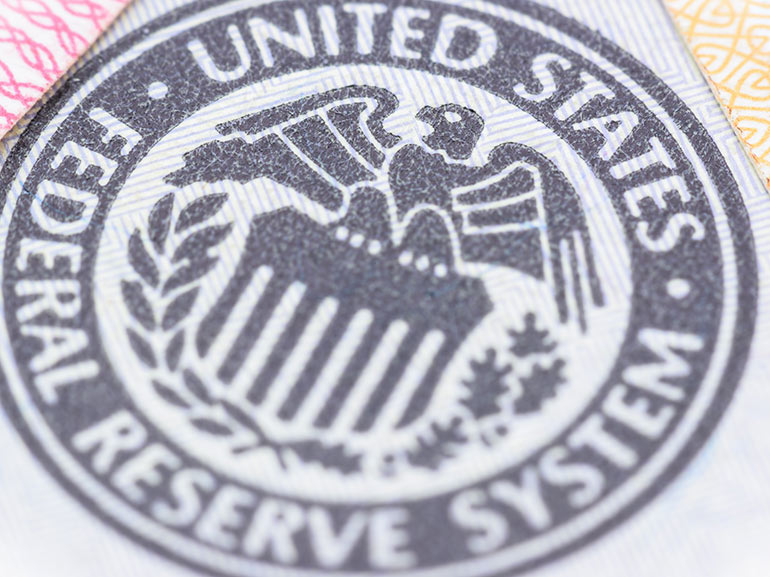Ocado Share Price Explained: Ocado Stock Trading Guide
Date Modified: 12/10/2025
Ocado Group Plc (OCDO-L), founded in 2000 and listed on the London Stock Exchange (LSE) in 2010, has evolved from an online grocery retailer into a company recognised for its technological innovations in e-commerce and logistics. As traders consider the potential of this company’s stock, contracts for difference (CFDs) can offer a flexible way to speculate on Ocado’s share price movements.
This guide will explore how CFD trading can be used to engage with Ocado’s stock and highlight the key factors influencing its value. Understanding these dynamics, whether through strategic partnerships, economic conditions, or market speculation, is crucial for making informed trading decisions.

TL;DR
- Ocado Group Plc, founded in 2000, is listed on the London Stock Exchange under the ticker OCDO.
- The company has evolved from an online grocery retailer to a tech-driven firm focused on e-commerce and logistics solutions.
- Strategic partnerships, such as the deal with Wm. Morrison Supermarkets can significantly impact Ocado's stock price.
- CFDs offer a flexible way to speculate on Ocado's share price movements without owning the shares.
Ocado Group’s Business Model & Market Position
Founded in 2000, Ocado Group Plc started as a pure-play online grocery retailer in the UK, selling only through online channels and pioneering the digital transformation of grocery shopping. Listed on the London Stock Exchange in 2010 under the ticker OCDO, Ocado has since evolved into a technology-driven company, focusing on developing and deploying cutting-edge automation and robotics solutions for the grocery industry.
The company’s flagship product, the Ocado Smart Platform (OSP), exemplifies this shift, offering end-to-end solutions that automate everything from order processing to delivery.
Ocado's business model revolves around two core components: its online grocery retail operations and its technology services through the OSP. The company’s grocery division, Ocado Retail, a joint venture with Marks & Spencer, remains a significant revenue generator, with over £2.3 billion in revenue in 2023.
However, the most transformative aspect of Ocado’s business is its focus on providing technological solutions to other retailers. By leveraging its expertise in robotics, artificial intelligence (AI), and machine learning, Ocado has secured global partnerships with major retailers such as Kroger (KR), Groupe Casino, and Sobeys, positioning itself as a leader in the e-commerce and logistics technology sectors.
Regarding market position, Ocado competes not only with traditional grocers like Tesco (TSCL-O) and Sainsbury's (SBRY-L) but also with tech giants like Amazon (AMZN) in the logistics and automation space. The company’s competitive advantage lies in its proprietary technology, which enables efficient, scalable, and cost-effective operations that are difficult for competitors to replicate.
As Ocado continues to innovate, focusing on expanding its OSP and enhancing its automation capabilities, it is well-positioned to capitalise on the growing demand for online grocery services globally.
How to Trade Ocado Shares Through CFDs
One way to engage with Ocado shares is through contracts for difference. CFDs enable traders to speculate on the price movements of OCDO-L stock without actually owning the shares. This approach allows traders to trade on both rising and falling markets, making CFDs a flexible tool for trading Ocado shares during various market conditions.
CFD trading also offers the use of leverage, allowing traders to gain larger exposure in an underlying instrument with a smaller initial capital outlay. However, although leverage can amplify potential gains, it can magnify losses, so employing sound risk management strategies is crucial when trading CFDs on Ocado shares.
Understanding the key factors impacting Ocado's share price is also essential for making well-informed trading decisions using CFDs.
What Moves Ocado Share Price?
Ocado’s share price is influenced by various factors, from strategic partnerships and business development to market and economic conditions.
Strategic Partnerships
Strategic partnerships play a crucial role in shaping the stock prices of companies like Ocado. These alliances can often validate a company's technology and market strategy, influencing trader sentiment and driving significant stock price movements.
For Ocado, its partnership with Wm. Morrison Supermarkets in 2013 is a prime example of how such agreements can positively impact share prices. Following the announcement of a 25-year agreement with Morrisons, Ocado’s stock surged by 40% on 17 May 2013, reflecting trader confidence in its ability to leverage its technological and logistical capabilities to support a major retailer's online presence.
However, the influence of strategic partnerships on stock prices is only sometimes positive. Before the Morrisons deal, Ocado's shares had been trading at less than half their initial public offering (IPO) price of 275 pence due to concerns over profitability and the scalability of its business model. The partnership helped reverse this negative trend but underscores how the absence or failure of such strategic deals could lead to stock price declines.
Technology Licensing Deals
Technology licensing deals are critical to Ocado’s business development strategy and can significantly impact its stock prices. These agreements may allow Ocado to leverage its proprietary technology to partner with major global retailers, expanding its reach and revenue streams.
A prime example is the exclusive partnership deal between Ocado and U.S. grocery giant Kroger in May 2018. This agreement not only facilitated the deployment of Ocado’s advanced robotic and logistical technologies across the U.S. but also caused Ocado’s shares to surge by over 60% following the announcement. The substantial increase in stock price highlights how traders may positively react to the potential growth and revenue generation.
However, while technology licensing deals may present considerable opportunities for stock appreciation, they also carry risks that could negatively affect Ocado’s market performance if not executed effectively. The long-term success of these partnerships depends on Ocado’s ability to meet its technological and operational promises. Any delays, cost overruns, or failure to deliver on these commitments could potentially cause a stock price decline as trader confidence may decrease.
Economic Crises
Economic crises, such as the COVID-19 pandemic, can profoundly impact stock prices, especially for companies like Ocado that are heavily involved in online retail. During the pandemic, Ocado experienced a significant surge in demand for grocery deliveries as consumers shifted to online shopping.
This shift led to a 52% rise in third-quarter revenue in 2020 and a 20% increase in retail sales in the first half of 2021. Such a dramatic increase in sales and revenue during an economic crisis positively influenced Ocado's stock price, as traders responded to the company's ability to capitalise on the heightened demand for online grocery services.
However, while Ocado benefitted from the pandemic-driven surge in online grocery shopping, any post-crisis normalisation of shopping habits, such as the return to in-store shopping as restrictions eased, could lead to a decline in growth rates and pressure on stock prices.
Market Speculation and Rumours
Market speculation and rumours can significantly impact a company’s stock price, often causing short-term fluctuations. For Ocado, this was evident on 22 June 2023, when speculation about a potential takeover bid from Amazon and other American tech giants caused its shares to jump by more than 30%. The mere suggestion of interest from a company like Amazon can boost trader confidence, potentially leading to substantial increases in stock prices, as seen with Ocado’s shares soaring as much as 43% following the news. Such speculation can create a temporary spike in stock prices, reflecting the market’s excitement over potential future developments.
However, the effects of market speculation and rumours are not always sustained. Once the initial excitement wears off or if the rumoured event fails to materialise, stock prices can fall back, leading to volatility.
Conclusion: Understanding Ocado Stock Trading
Understanding how to trade Ocado stock involves a comprehensive analysis of the company's business model, market position, and the various factors influencing its share price. Each element is crucial in shaping Ocado's stock performance, from strategic partnerships and technology licensing deals to economic crises and market speculation.
The insights provided in this guide can serve as a valuable resource for traders considering CFDs as a method for speculating on Ocado's share price movements. By staying informed about these key influences, trading strategies can be used by traders and potentially capitalise on both the opportunities and challenges that impact Ocado's stock.
If Ocado shares CFD trading piques your interest, you can start trading OCDO-L CFDs with Plus500.
FAQs
Ocado Group Plc is a UK-based company founded in 2000. It started as an online grocery retailer and has since evolved into a technology-driven firm specialising in e-commerce and logistics solutions.
You can trade Ocado shares through Contracts for Difference (CFDs), which allow you to speculate on the share's price movements without owning the shares directly. CFDs provide flexibility in trading both rising and falling markets.
Ocado’s share price is influenced by strategic partnerships, technology licensing deals, economic conditions, and market speculation, among other factors.
Related News & Market Insights
Get more from Plus500
Expand your knowledge
Learn insights through informative videos, webinars, articles, and guides with our comprehensive Trading Academy.
Explore our +Insights
Discover what’s trending in and outside of Plus500.
Stay up-to-date
Never miss a beat with the latest News & Markets Insights on major market events.


